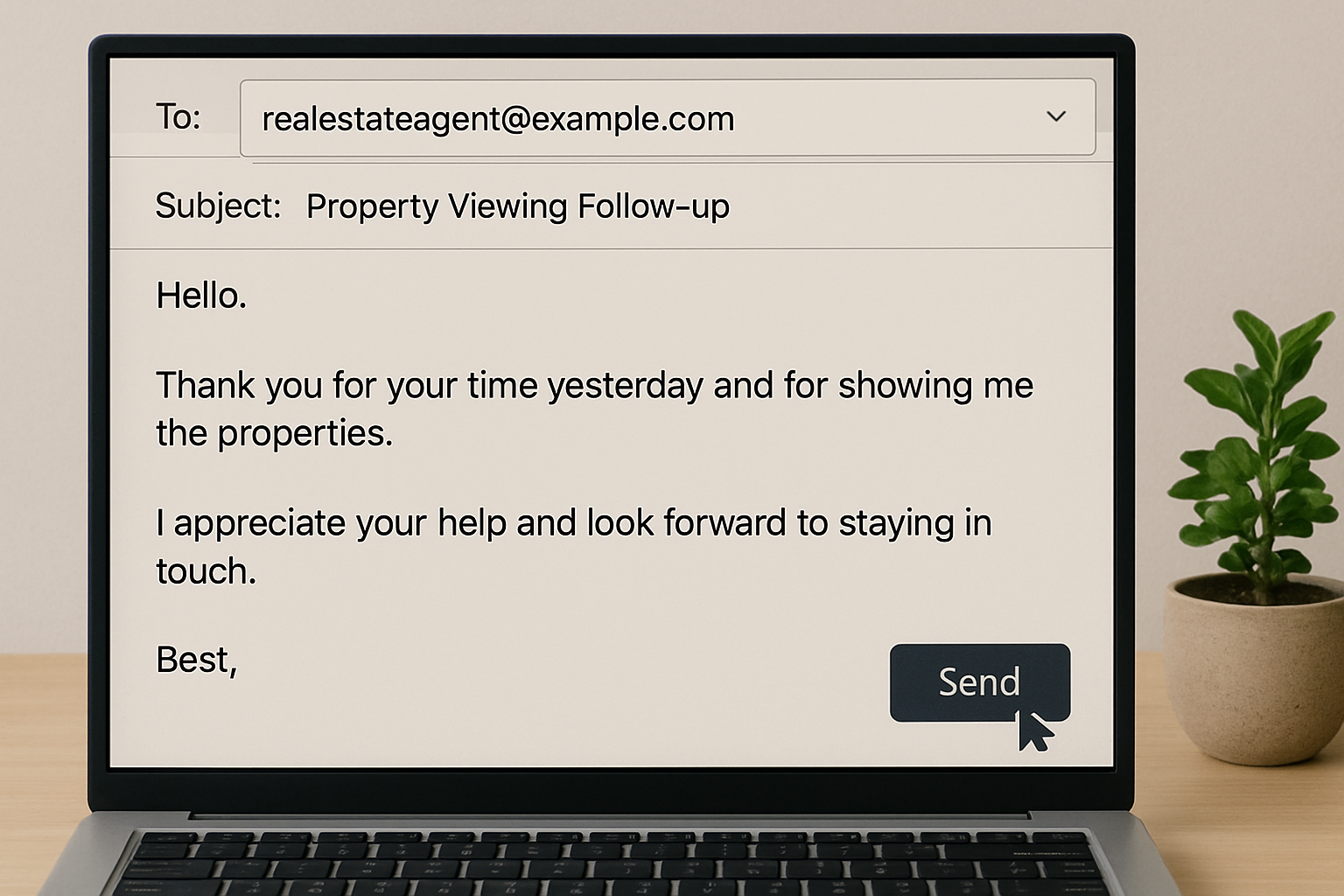Some individual investors interested in real estate investment may wonder if they can purchase an investment property using a mortgage loan with a low interest rate. In conclusion, however, real estate investment using home mortgages should definitely be avoided. The reason for this is that in addition to institutional restrictions, the legal and financial risks are extremely high. In fact, in recent years, there have even been reported cases of people being forced into personal bankruptcy after being induced by unscrupulous agents to abuse their mortgage loans and being asked to pay back a large lump sum. This article will explain the details and how to legally and strategically procure funds.
The Original Purpose of Mortgages and Systemic Restrictions
Mortgages are originally loans to acquire a "residence to live in. The contract also specifies the purpose of the loan as "funds for the borrower (user) to purchase a property for his/her own or his/her family's residence," and any other use of the loan would be a breach of contract. Mortgage loans offer preferential treatment, such as low interest rates and long-term financing, for the social purpose of promoting the acquisition of one's own home. In return, there is a strict restriction that they cannot be used for investment purposes.
Specifically, "Flat 35," a long-term fixed-rate loan provided by the Japan Housing Finance Agency (JHF), clearly states as a condition of use that the loan "cannot be used to finance the acquisition of properties for investment purposes. The same is true for ordinary mortgages provided by private banks, which require the borrower to live in the property on the premise that the borrower will live in the property himself/herself in the documents to be submitted at the time of contract and in the terms and conditions of the contract.
There are some cases in which it is permissible to rent out the property as an exception while using a mortgage loan. For example, in the case of a "rental combination housing" in which part of the home and the rental portion are combined and the area of the home portion is 50% or more, the mortgage loan can be used even if the remainder is rented out (in this case, the home portion is also eligible for mortgage tax breaks). In some cases, when you leave your home temporarily due to unavoidable circumstances such as a job transfer, you may be allowed to temporarily operate a rental operation with the approval of the financial institution. However, the basic premise in all of these cases is that the home is "essentially your home," and it is not permissible to use a mortgage loan exclusively for investment purposes from the outset.
Legal and Financial Risks of Real Estate Investment Using a Mortgage Loan
Investors are exposed to significant legal and financial risks if they divert their mortgages for investment purposes. The main risks are summarized as follows
-
Lump-sum repayment demand due to breach of loan agreement: If the loan is found to be in violation of its intended use, the investor will be required to immediately repay the remaining balance in a lump-sum payment based on the "forfeiture of the benefit of time" clause in the loan agreement. If the loan was originally contracted to be repaid in installments, a single breach of the loan agreement obligates the borrower to immediately pay back the entire remaining balance. For example, the Japan Housing Finance Agency (JHF) clearly states that it will demand a lump-sum repayment of the remaining debt if it is found to have been misused.
-
Risk of asset forfeiture or bankruptcy due to failure to repay: If the lump-sum repayment is not met, the real estate collateral will eventually be disposed of through auction or foreclosure. In some cases, not only will you lose your home or investment property, but if you are still in debt, you may end up in bankruptcy. There have actually been cases reported where fraud was discovered and the property had to be sold, but the loan could not be paid off and a large amount of debt remained.
-
Negative impact on credit report and difficulty in getting loans in the future: A loan violation can critically damage the relationship of trust with financial institutions. If the loan is found to have been misused, it is more likely that the financial institution will lose confidence in you and you will not be able to obtain new loans in the future. The fact will be registered in the bank's internal records and personal credit bureaus, making it difficult to obtain a mortgage, let alone other loans, in the future.
-
Liability for fraud: In the worst case scenario, you may be charged with fraud under the criminal law. The act of borrowing money by falsely applying for a mortgage loan with the knowledge that the loan is for investment purposes is an act of borrowing money by deceiving the bank, and can be a cause for rescission of the contract as contract fraud in the civil law. If the bank rescinds the contract, the loan will be considered to have never existed, and as a result, the bank will be required to refund the entire amount of the remaining loan (unjust enrichment). In addition, malicious cases where a borrower intentionally and habitually makes false declarations to obtain a large loan may result in criminal prosecution. In particular, if a borrower conceals the fact that the loan is for a residence and also receives a mortgage tax reduction (home loan deduction), it is considered to be a tax fraud (tax evasion) and is considered to be highly malicious.
As described above, real estate investment by abusing mortgage loans is high risk both legally and financially. At first glance, the low interest rates on mortgages may be attractive, but there are so many dangers lurking behind the scenes. You should be aware that the benefits are far outweighed by the short-term interest rate difference, and that you may pay a huge price.
Perspectives from financial institutions and examiners: Strict stance against misuse
Financial institutions take a very strict stance against inappropriate use of mortgage loans. For banks, a mortgage loan is a product that is considered "low-risk because the customer uses it as a home," and any violation of this premise is not only a breach of contract but also an act that increases the bank's risk. For this reason, financial institutions continue to check the actual use of the borrowed property even after the loan is executed.
For example, the Japan Housing Finance Agency (JHF) conducts periodic surveys after the loan is executed to determine whether the borrower is actually living in the financed housing, and conducts a detailed follow-up survey if there are concerns of inappropriate use. Private banks also commonly check the actual status of residence by sending mail addressed to the subscriber to the property address "without forwarding" and suspecting actual residence when the mail is returned to the address without an address. In fact, it is said that "undelivered mail" is a typical pattern for financial institutions to discover investments abusing mortgage loans. If important documents sent to the property address are returned to the bank undelivered, the bank immediately investigates, "Maybe the borrower doesn't live there?" If the bank does not receive the important documents sent to the property address and they are returned to the bank, the bank will immediately investigate the matter.
In some cases, a bank representative may visit the property to check. If the bank visits the borrower in person, it is obvious that the borrower does not reside in the property, so it is obvious that the borrower has violated the contract. In this way, financial institutions monitor loan misuse in a variety of ways, and it is not something that goes unnoticed.
And when misuse is discovered, financial institutions take immediate and strict action against the borrower. In addition to the aforementioned request for lump-sum repayment of the remaining balance, the Japan Housing Finance Agency (JHF), a public institution, will report the matter to the police and the involved borrowers to the government, and will also take legal action, including a claim for compensation for damages. Private banks are also internally recorded as "persons requiring caution," and their credit information may be shared with other financial institutions within and outside the group. In short, banks view mortgage loan abuse as a serious breach of contract and damage to credit, and will not condone it if discovered.
In recent years, with the background that fraudulent real estate investment using mortgage loans has become a social problem, financial institutions have been under even tighter scrutiny. As property prices soar, especially in urban areas ( Tokyo, Osaka, Yokohama, etc. ), banks are becoming increasingly wary of malicious companies that advertise that they can easily obtain financing by using mortgage loans. Banks are also concerned about their own lending stance and social credibility, so they will aggressively deal with cases of suspected misuse of funds.
Learning from Actual Trouble Cases
Let's see how serious the consequences of mortgage misuse can be through actual cases. Here are some of the cases recently reported in the media.
-
Case 1: Case of Mr. A in Osaka City - Mr. A, a company employee in his 40s living in Osaka City, planned to build an apartment for rent with the expectation of building a future asset. However, he was told by a broker-like person, "You can finance it with Flat 35. However, a broker-like person suggested to him that he could obtain financing through Flat 35, and that he could pass the examination if he used it as a second house (a separate house). As a result, it was discovered that he had violated the purpose of using Flat 35 (using it for an investment property), and the Japan Housing Finance Agency demanded a lump-sum repayment of the balance of the loan of approximately 30 million yen. Mr. A despaired, saying, "I thought this was going to be an asset for the future, but now I'm saddled with a huge amount of debt. In this case, the direct cause was that he believed in the sweet words of the fraudster.
-
Case 2: Mr. B, Tochigi Prefecture - Mr. B, a company employee in his 30s in Tochigi Prefecture, was also in breach of contract for purchasing an investment property with a mortgage loan and was required to repay approximately 40 million yen in a lump sum. Victims like Mr. A and Mr. B are spreading across the country, and similar problems are occurring one after another in various regions.
-
Case 3: "Fake real estate investment" by unscrupulous agents - Behind such tactics targeting individuals is the existence of unscrupulous real estate agents and brokers. In seminars and solicitations, they encourage amateur investors to take out mortgages by telling them that "recently, the screening process for real estate investment loans is very strict, but mortgages are easy to get," or "interest rates are low, so you can make a lot of money from it. While this may sound plausible at first glance, it is, of course, illegal to take out a mortgage loan in lieu of an investment loan under the false pretense that the loan is for "residential use. There have been cases in which borrowers have been forced into bankruptcy after loan violations were discovered as a result of being taken in by the mouthpieces of these companies. This is a typical example of how the "easy money" sweet talk has a flip side.
As the above cases clearly show, real estate investment using mortgages is not just a theoretical theory, but has actually led to serious troubles. In particular, Mr. A's case is in Osaka, Mr. B's case is in Tochigi, and the class action lawsuit is in Tokyo, so problems are occurring on a nationwide regional scale. Even if you live in major cities such as the Tokyo metropolitan area including Yokohama or the Osaka area, you should not let your guard down and think that you are the only one who is safe. It is important to be very careful of similar enticements and protect yourself.
Types of Financing Suitable for Real Estate Investment and How to Use Them Properly
So, what type of loan should you use when investing in real estate? In conclusion, it is important to use a loan product specifically designed for your application. In addition to mortgages, various loan products for real estate investment are offered, so be sure to use them correctly.
Typical real estate investment loans include the following
-
Real estate investment loans (apartment loans) - These are loan products offered by financial institutions for the purchase or construction of investment properties. Although the names vary from bank to bank, it can be thought of as a general term for loans to purchase or build apartments or condominiums and rent them out to others to earn rental income. The crucial difference between this type of loan and a mortgage is that the borrower does not live in the property, but uses the loan for the sole purpose of managing the rental business. The loan term is often set at 20 to 35 years, depending on the useful life of the property, and the interest rate is set higher than that of a mortgage. For example, currently the lowest interest rate for a city bank mortgage loan (variable interest rate) is in the 0.4% range per year, while investment loans generally start at around 1.6% per year. Despite these high interest rates, the loans are characterized by the fact that they are financed with the expectation that business income in the form of rental income will be the source of repayment, and the profitability of the property and its collateral value are emphasized in the screening process. The creditworthiness of the borrower, such as salary income, is also looked at, but the "profitability of the property itself" is more important than with a mortgage loan.
-
Second Home Loan - Although not strictly a real estate investment loan, it is mentioned here as a supplement. A second home loan is a loan used to acquire a second home, such as a vacation home or weekend residence. At first glance, it is classified as a residential loan, but it is not intended to be rented out. Second home loans tend to be more stringent than mortgage loans and have slightly higher interest rates, but they may still be more lenient than investment loans, and unscrupulous companies may try to convert these loans into the purchase of an investment property. Naturally, however, this is contractually prohibited. In fact, in the aforementioned case of Mr. A in Osaka City, he borrowed a Flat 35 loan after being told by his broker that it would be OK if it was in the name of a second house, but as a result, the loan was declared fraudulent. Please note that it is not allowed to use a loan for investment under a false name, including a second house loan.
As mentioned above, the ironclad rule is to use an investment loan from the beginning if you want to invest in real estate. You may feel that the interest rate is higher and the borrowing conditions are stricter than those of a home loan. However, these are justifiable terms and conditions that incorporate risks commensurate with the business of investment, and in other words, as long as you choose the right property and plan your finances properly, you can obtain a loan and manage your property soundly. In fact, it is more irregular to circumvent mortgage regulations and take out illegal loans, and unexpected risks are piling up.
In addition, it is possible to use both a mortgage loan and a real estate investment loan as a strategy for asset building. For example, if a person who already has a mortgage on his/her home takes out a new investment loan, he/she should pay attention to the maximum amount of total borrowing against his/her annual income (annual income multiplier). In order to assess an individual's overall repayment ability, financial institutions set a standard for how many times the combined balance of the mortgage and investment loan is allowed to be multiplied by the annual income. For example, if your annual income is 5 million yen and the upper limit is 10 times (50 million yen), then if your home loan balance is 35 million yen, your investment loan can be no more than 15 million yen. As you can see, the framework itself is the same for both mortgage loans and investment loans, so it is important to allocate your borrowing limit systematically if you want to both purchase a home and invest in a home. In any case, if you use a legitimate investment loan, you can use it together with a mortgage within the scope of the rules, so there is no need to feel guilty about it.
Advice for Private Investors to Raise Funds Legally and Strategically
Finally, here is a summary of advice for individual investors on financing their real estate investments with peace of mind.
1. understand and follow the rules: When starting to invest in real estate, make sure you understand the difference between a mortgage and an investment loan. Each has different purposes and advantages and disadvantages: a mortgage loan is a preferential loan for purchasing your own home, while a real estate investment loan is for operating a rental property as a business. The contract also specifies the uses and prohibitions, so it is essential to read it carefully before signing. If you are not sure, you may check with a specialist (lawyer, FP, etc.). It is a world where "I didn't know" is not an option, so it is important to be armed with basic knowledge first. 2.
2. don't take advantage of sweet offers: Be wary of agents and consultants who will tell you that "you can easily buy a property with a mortgage" or "there is a way to avoid being caught. Unfortunately, the real estate industry is full of companies that are profit-driven and offer illegal tactics. Beginners are especially vulnerable. However, as mentioned above, if you are caught cheating on your mortgage, it is the end of the line. If you are approached to invest with a mortgage loan, have the courage to firmly refuse the offer. Do not jump into the easy way out, but choose the steady and straightforward way is the most solid strategy in the long run. 3.
3. plan to meet loan requirements: Investment loans have higher hurdles than mortgages, so make a detailed financial plan in advance. It is also effective to prepare as much personal funds (down payment) as possible to reduce the amount of loan. If you can show that you can repay the loan without difficulty by simulating the income and expenditure of the property and factoring in risks such as rising interest rates and vacancies, you will be more likely to pass the screening process. It is also important to improve your own creditworthiness (annual income, length of employment, and credit information). The more you are a "good customer" in the eyes of the bank, the more favorable loan negotiations will be.
4. try to work with your existing mortgage: If you already have a mortgage on your home, consider whether you can take out an investment loan to the extent that it is affordable. Based on the concept of the annual income multiplier mentioned above, calculate whether the balance of your home loan and the new investment loan together are within an acceptable range. If your home loan is a burden and you do not have the capacity to invest, one option is to reduce the balance by paying it off early. Some banks may also be willing to discuss your home and investment property together. For example, megabanks and some regional banks offer comprehensive financing plans for high net worth individuals.
If you are unfortunate enough to have been misled into buying an investment property with a mortgage and are about to be found in violation, you should try to correct the situation as soon as possible. Specifically, promptly negotiate with the financial institution and approach them about refinancing or switching contracts to an investment loan. Financial institutions would rather keep the contract even if they have to raise the interest rate than to be unable to repay the loan and fall into default, so if you talk to them in good faith, you may be able to find a way to refinance into an investment loan. If that is not possible, we will seek a way to refinance the loan with another investment loan from another financial institution. If that is not possible, you should consider selling the property at the highest possible price and repaying the loan in a lump sum, although this may be a difficult decision to make. In any case, neglecting the property will lead to the worst possible outcome, so take action to minimize the damage while also consulting with experts (lawyers, judicial scriveners, etc.).
Conclusion
The temptation to invest in real estate using mortgages may be something you may see only now, in this era of low interest rates. However, as we have discussed, it is a dangerous area that should never be ventured into. Any use of a mortgage loan that deviates from its original intent is a breach of contract, and if discovered, it could destroy your investment plan in an instant. Compared to that risk, it is far healthier and safer to legitimately use an investment loan with a slightly higher interest rate.
I would like to urge individual investors not to jump into short-sighted gains, but to take a long-term view and steadily pursue asset building. Whether in urban or rural areas such as Tokyo, Osaka, or Yokohama, the rules of financial institutions are the same throughout Japan. The key to successful real estate investment lies in proper financial planning and a relationship of trust with financial institutions. If you comply with laws and contracts and utilize financing in a straightforward manner, real estate investment is a field where even beginners can accumulate solid results.
Lastly, I emphasize* avoid real estate investment by abusing mortgages and take a step toward steady investment with the right loan products. This is the only way to protect your valuable assets for the future and lead to successful asset building.

Daisuke Inazawa
Representative Director of INA&Associates Inc. Based in Osaka, Tokyo, and Kanagawa, he is engaged in real estate sales, leasing, and management. He provides services based on his extensive experience in the real estate industry. Based on the philosophy that “human resources are a company's most important asset,” he places great importance on human resource development. He continues to take on the challenge of creating sustainable corporate value.

.png)













